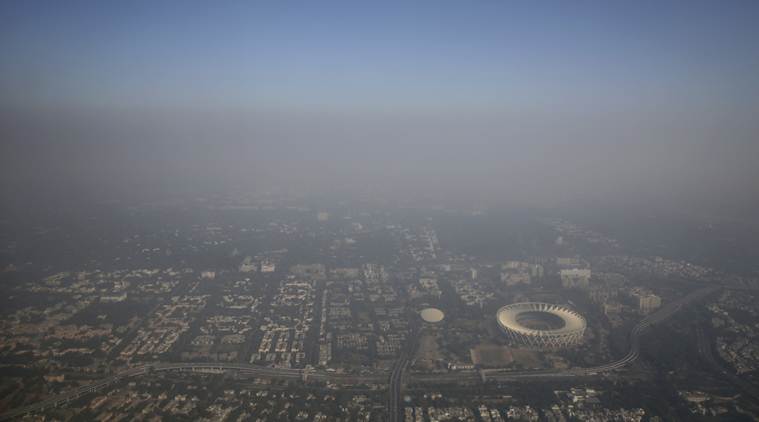Delhi: Funds for 40 lakh saplings and smog towers in budget
Deputy Chief Minister Manish Sisodia mentioned the need to install smog towers and proposed an outlay of Rs 30 crore under a ‘Pollution Control and Environment Management’ scheme to control air pollution in Delhi.
 Delhi witnesses a pollution crisis every year from October to December. The government has proposed installing smog towers, designed to work as large-scale air purifiers. (File Photo)
Delhi witnesses a pollution crisis every year from October to December. The government has proposed installing smog towers, designed to work as large-scale air purifiers. (File Photo)
Smog towers, green citizen awards, planting 40 lakh saplings a year, deployment of marshals for implementing the Environment Protection Act — these are some of the highlights of the environment and forest section of the new budget.
Deputy Chief Minister Manish Sisodia proposed Rs 20 crore to carry out “intensive campaigns” in the city to create awareness and public participation.
“This is for segregation of waste at home, avoiding single-use plastic, rooftop plantation, gifting plants instead of offering bouquets, use of public transportation and carpooling, cycling for short distance…,” he said.
A ‘green citizen award’ would be constituted to encourage environment protection. Sisodia also proposed an outlay of Rs 2 crore to provide additional manpower to the district administration for implementing the Environment Protection Act, 1986, under a scheme named ‘Deployment of Marshals’.
The Deputy CM also mentioned the need to install smog towers and proposed an outlay of Rs 30 crore under a ‘Pollution Control and Environment Management’ scheme to control air pollution in Delhi.
To increase green cover in the city, 40 lakh saplings would be planted by 22 green agencies in the coming financial year, with a target of planting 2 crore in the next five years.
In terms of water, Sisodia proposed a budget of Rs 3,724 crore for the implementation of the Delhi Jal Board’s projects and Rs 467 crore for the water subsidy scheme that provides 20,000 litres of free water to 6 lakh beneficiaries in Delhi.
Besides this, Rs 110 crore has also been allocated for the ‘Mukhyamantri Muft Sewer Connection Yojana’, under which the DJB would provide free connections to houses in areas that have sewer lines.
“The total allocation for water supply and sanitation in 2020-21 is about 70% higher than the revised estimates of 2019-20. The reason for this is that more funds have been allocated for unauthorised colonies, sewer treatment plants and interceptor sewerage,” said Sisodia.












